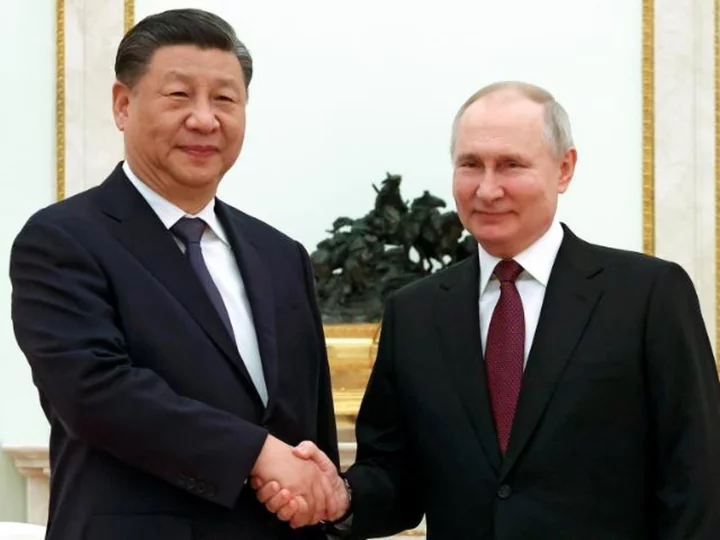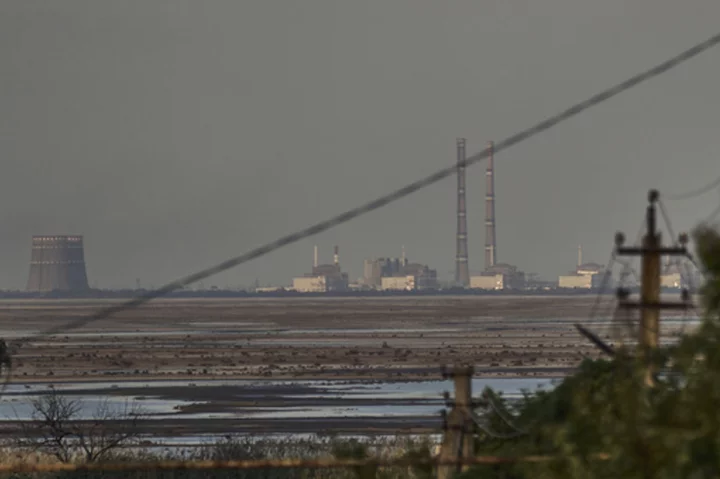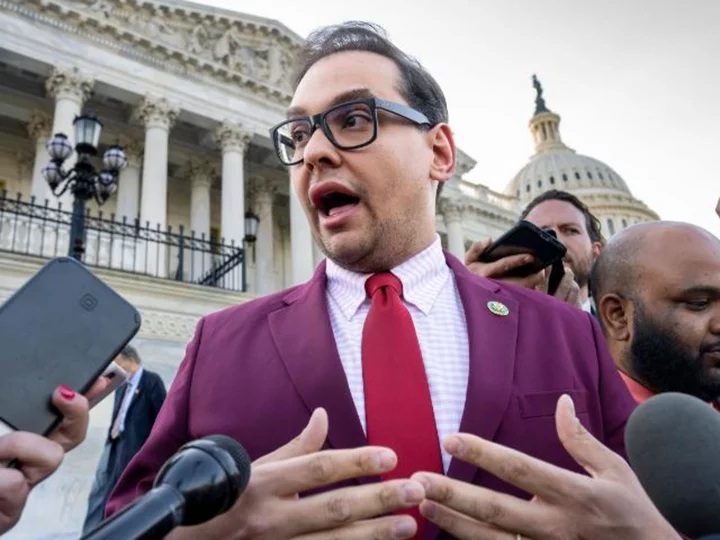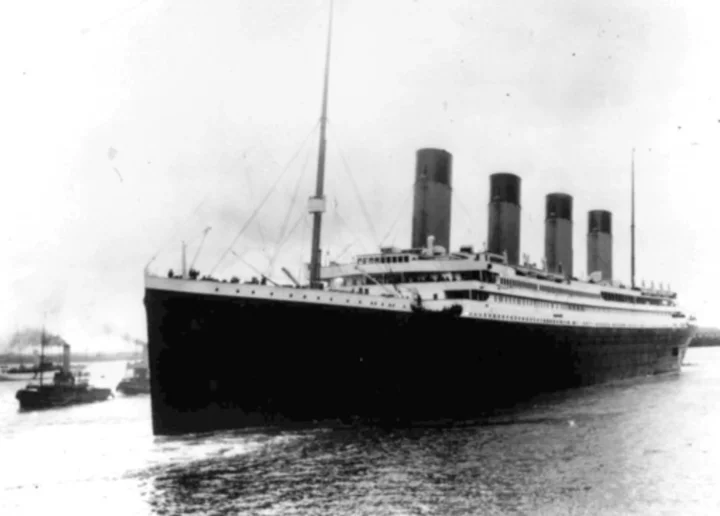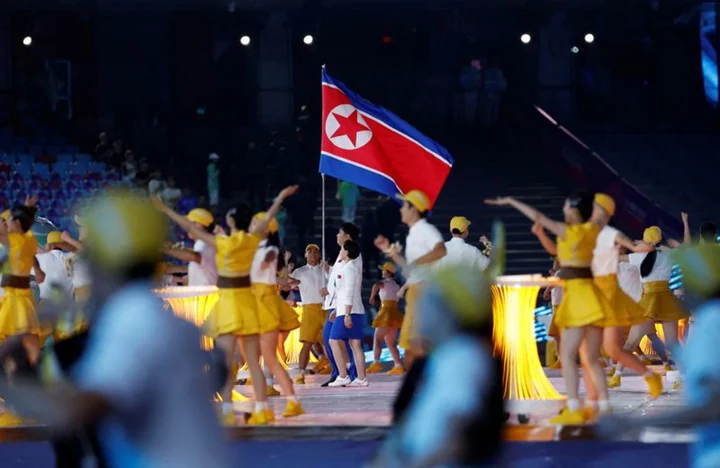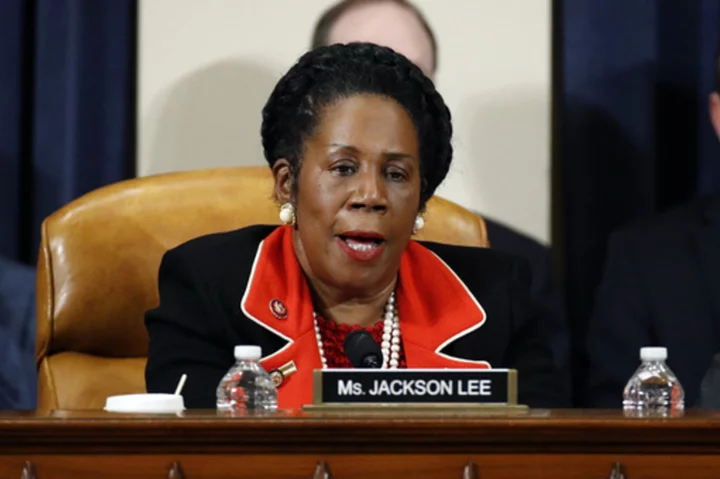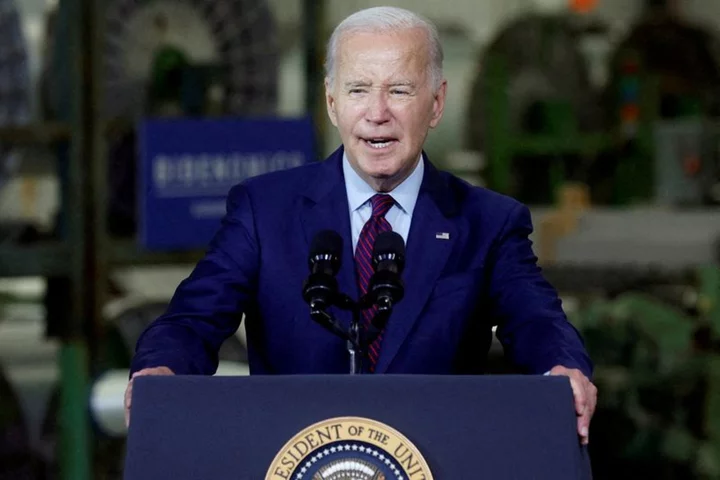China has voiced support for Russia after a short-lived insurrection posed the gravest challenge to the 23-year rule of Vladimir Putin, a close partner of Chinese leader Xi Jinping in his push for a new world order and strategic alignment against the US.
A day after Wagner mercenary fighters turned back from their march toward Moscow, ending a brief and chaotic uprising by warlord Yevgeny Prigozhin, Beijing released its first comment on what Putin had called an "armed rebellion."
"This is Russia's internal affair," a Chinese Foreign Ministry spokesperson said in a terse statement posted online late on Sunday night.
"As Russia's friendly neighbor and comprehensive strategic partner of coordination for the new era, China supports Russia in maintaining national stability and achieving development and prosperity," it said.
Beijing's carefully crafted public comment came well after the brief mutiny had dissipated, with Prigozhin agreeing on Saturday to pull back his fighters in a deal with the Kremlin that would reportedly see him enter into exile in Belarus.
It also came after Russian Deputy Foreign Minister Andrey Rudenko flew to Beijing to meet with Chinese officials on Sunday, where the two sides reaffirmed their close partnership and political trust.
China's Foreign Minister Qin Gang and Rudenko exchanged views on "Sino-Russian relations and international and regional issues of common concern," the Chinese Foreign Ministry said in a one-line statement posted on its website, with a photo showing the pair walking side by side while smiling.
Russia's Foreign Ministry said Rudenko also held "scheduled consultations" with China's Deputy Foreign Minister Ma Zhaoxu.
"The Chinese side expressed support for the efforts of the leadership of the Russian Federation to stabilize the situation in the country in connection with the events of June 24, and reaffirmed its interest in strengthening the unity and further prosperity of Russia," the Russian ministry said in a statement.
According to the Chinese readout, Ma told Rudenko that under the leadership of Xi and Putin, the mutual political trust and cooperation between China and Russia had grown continuously.
"Under the complex and grim international situation, it is necessary to follow the important consensus reached by the two leaders, communicate in a timely manner, ensure the stable and long-term relationship between the two countries, and safeguard the common interests of both sides," Ma was quoted as saying.
Xi, China's most authoritarian and powerful leader in decades, has developed a close personal rapport with Putin over their shared ambition to challenge the US-led global order. The two autocratic leaders declared a friendship with "no limits" in February 2022, shortly before Putin launched his war on Ukraine.
Despite its claims of neutrality, China has refused to condemn the invasion and instead provided much-needed diplomatic and economic support for Russia, a position that has alarmed Western nations, especially in Europe.
As the devastating war drags on, Beijing has sought to portray itself as a peace broker in an effort to repair relations with Europe -- but it has also continued to deepen ties with Moscow.
In March, Xi and Putin made a sweeping affirmation of their alignment across a host of issues -- and shared mistrust of the United States -- during the Chinese leader's first visit to Russia since the invasion.
"Right now there are changes -- the likes of which we haven't seen for 100 years -- and we are the ones driving these changes together," Xi told Putin as they bid farewell at the door of the Kremlin.
Three months on, the co-driving force for Xi's vision has seen his grip on power severely challenged by an extraordinary show of defiance, shattering the veneer of total control the Russian leader has struggled to maintain.
Wen-Ti Sung, a political scientist with the Australia National University's Taiwan Studies Program, said the Wagner insurrection "contradicts the narrative of Putin as a strong leader who enjoys full support of his people, and is here for the long haul as China's global partner of choice."
"If Putin's rule is unstable, then supporting him is bad business," he said.
Putin's weakened grip was not lost on even the most hawkish and nationalistic Chinese scholars and commentators.
"Although Russia's nightmare came to an end temporarily yesterday, this incident will definitely hurt Russia and Putin's image," Jin Canrong, an international relations professor at Renmin University in Beijing, wrote Sunday on Weibo, where the Wagner insurrection was a top trending topic over the weekend.
Jin, a government adviser known for his fiercely anti-US rhetoric, described the rapid turn of events as "surreal."
"It is very dangerous for a country to support and keep such a large non-state military group -- this 'lesion' may break out at any time," he wrote.
Commenting on Twitter Saturday before Prigozhin aborted his insurrection, Hu Xijin, the former editor of the nationalist Global Times, said the "armed rebellion has made the Russian political situation cross the tipping point."
"Regardless of his outcome, Russia cannot return to the country it was before the rebellion anymore," he said in the Tweet, which was later deleted.

